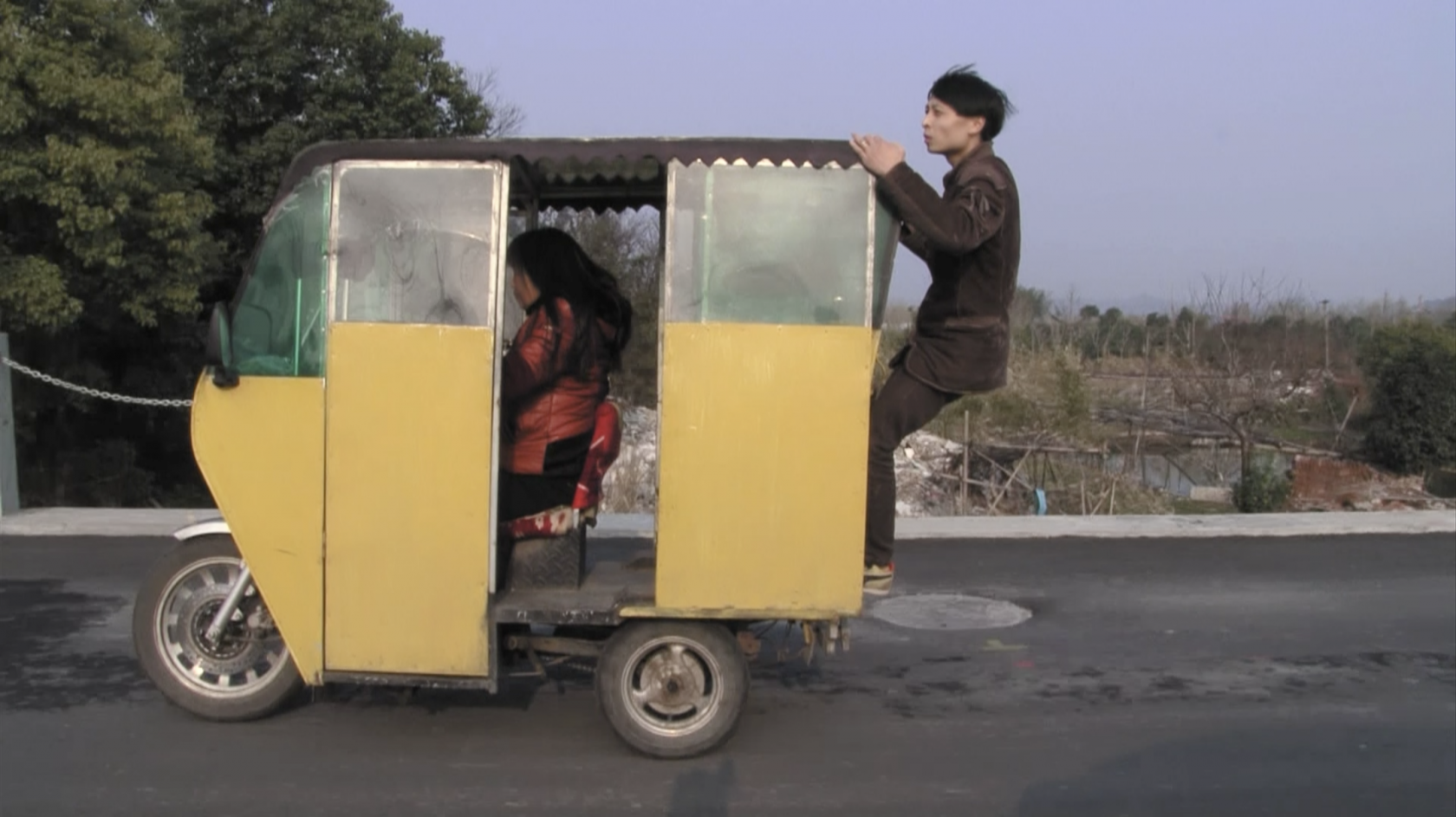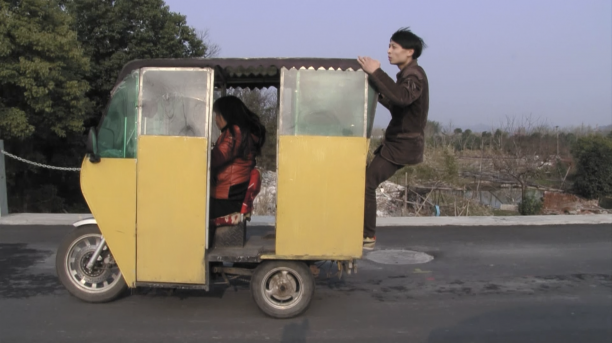During the months of May and early June, The Museum of Contemporary Art, Los Angeles (MOCA) is partnering with K11 Art Foundation (KAF) to pair works on SCREEN. Founded by Adrian Cheng in 2010, K11 Art Foundation is a non-profit organization in Hong Kong dedicated to fostering the development of Chinese contemporary art. This all-digital collaboration will allow viewers to experience key works from these institutions’ collections during a time when travelling and physical viewing has been made difficult. KAF X MOCA: Transpacific Stream will be available 24/7 on MOCA’s SCREEN platform, as well as on KAF’s website.
KAF x SCREEN: Transpacific Stream pairs four video works by MOCA collection artists with four works on loan to KAF. Videos and films by Judy Fiskin, Erin Cosgrove, Mark Leckey, and Damian Ortega will be paired with those by Chinese artists Liu Chuang, Guan Xiao, Li Ming, and Cheng Ran. Screened over the course of six weeks, each pairing will highlight a theme shared by the two works, and that showcases the similarities and differences in both the physical and cultural landscape of each institution’s location, as well as the unique experience of viewing these works during a global pandemic.
Visit K11 Art Foundation (KAF) to view the full program.
Pair 1: Judy Fiskin – Liu Chuang
Automotive Landscapes
April 29 - May 10
Judy Fiskin’s The End of Photography, 2007, captures the vantage from which most Angelenos encounter their city. Los Angeles is a profoundly twentieth-century city, insofar that its character was born from its inextricable relationship to the automobile. The film documents the vernacular architecture endemic to Los Angeles as the artist narrates a series of statements that list the elements that will no longer exist as we approach the end of film-based photography. Liu Chuang’s Untitled (Dance Partners), 2010 showcases a similar experience relating to the world as seen from the automobile. However, in Liu Chuang’s case, the artist suggests a relationship between automobile, passenger, and dense urban landscape that is both banal and tender at once.
Pair 2: Erin Cosgrove – Guan Xiao
Humor
May 11 - May 21
Part of the counter-culture that has defined the Californian lifestyle has been its proclivity for humor, self-deprecation, and a laissez-faire attitude. Humor, and humorous takes on the existential have long been themes that run throughout the video art that emerged from the American west coast--from Mike Kelley, Paul McCarthy, to Andrea Fraser; irony and pastiche are defining characteristics of artistic practice in California. Erin Cosgrove’s How Happy am I, 2009, is an animated condensation of human evolution, sang by a cast of dancing animated cartoons. Guan Xiao’s David, 2013, similarly uses song to create a humorous lens to make light of the ways that Michelangelo’s iconic David is exulted by its viewers.
Pair 3: Mark Leckey – Li Ming
Movement
May 22 - May 31
Over the last year, we have dealt with the ramifications of social distancing and health policies that ask us to remain within tight social circles. As we dream of the times when we might interact with strangers once again, benefit from chance encounters, and share our bodies with those around us, this video pairing bring us fond reminders of the ways that we move through space. Mark Leckey’s Fiorucci Made Me Hardcore, 1999, pays tribute to the dance-club culture that we hope to return to. Li Ming’s Movement, 2014 shows the artist using his body to propel himself and move freely from vehicle to vehicle, in a seemingly endless stream of encounters with freeway inhabitants.
Pair 4: Damian Ortega – Cheng Ran
Man versus Machine
June 1 - June 10
Now more than ever, we are struggling to understand the ways that technology, and the world’s we build within them, mediate our experience with our world. The relationship can be fraught, as we struggle to decide how a world transcribed through machines can be both a blessing and a curse. In Damian Ortega’s Moby Dick, 2004, a team of men struggle to contain a Volkswagen Beetle that writhes and pulls as its wheels slip on the greased asphalt. Set to a raucous soundtrack the iconic automobile, one that holds a nostalgic relationship to Mexican culture, seems transformed into a living creature. In Cheng Ran’s Always I Distrust, 2020 the artist approaches a quixotic relationship with technology from a totally different angle, one that embraces the miscommunications and mistranslations that come with our digital interactions. The simulated conversation between the artist and a spammer’s hacked email list leads us to think that, although the relationship might be predicated on falsities, there are still emotional connections to be made.
KAF x MOCA: Transpacific Stream” is organized by Bryan Barcena, Assistant Curator of Programs and Manager of Publications, The Museum of Contemporary Art, Los Angeles.
Virtual MOCA is a new and daily digital series available on both moca.org and across MOCA's social media platforms. To enjoy the breadth of this program, please follow us on our social channels:
Instagram: @moca
Facebook: @mocalosangeles
Twitter: @mocalosangeles
All Virtual MOCA content is archived and sent out via email at the end of each week. For easy access to previous programs, subscribe to our mailing list.
Virtual MOCA is presented by the MOCA Thrive Fund courtesy of Chara Schreyer.
Education at MOCA courtesy of Terri and Michael Smooke. Additional support provided by The Hearst Foundations, Blum & Poe, and Frederick R. Weisman Art Foundation.

